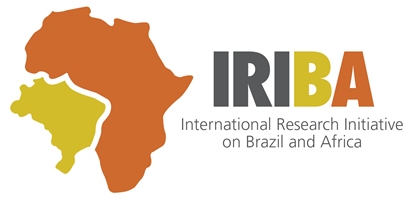FINDINGS: The role of fiscal & monetary policies in the Brazilian economy
As presented at our 2016 Rio de Janeiro findings workshop by IRIBA researchers José Afonso and Bernardo Fajardo. Listen in Portuguese:
IRIBA research in new book: ‘New Order and Progress. Development and Democracy in Brazil’
IRIBA research has been included in New Order and Progress. Development and Democracy in Brazil. The title documents the economic rise of Brazil from a variety of historical, comparative and theoretical viewpoints, and asks why the country has not been able to sustain its climb. Franc
December 16, 2016
Comments are off
Brazil and corruption: don’t hate the player, hate the game?
Much of IRIBA’s research has been cautiously optimistic, analysing changes that saw Brazil embark on a path of pro-poor growth and consolidate its newly redemocratised institutions. Now, the distinctive development ‘model’ that emerged in the early 2000s faces its first major challeng
IRIBA key findings seminar: Is there a Brazilian ‘development model’?
Prof. Ed Amann and Prof. Armando Barrientos gave a presentation on November 25 on some of the central findings of the IRIBA research. They discussed how Brazil’s comparatively successful development performance over the last two decades has been based on a pattern of inclusive g
Q&A: Ed Amann on the economic impact of a changed political climate
Ed Amann is Professor of Brazilian Studies at Leiden University Institute for History, and co-led the IRIBA project with Armando Barrientos. He reflects here on our research findings, and makes a few forecasts in light of new developments in the political climate in Brazil – and
November 24, 2016
Comments are off
Social policy and inclusive growth in Brazil
Inclusive growth doesn’t come out of nowhere. IRIBA’s Professor Armando Barrientos explains the ways in which socially-oriented policy decisions led to economic growth that primarily helped to increase the incomes and wellbeing of Brazil’s poorest, rather than that o
November 18, 2016
Comments are off
EVENT: Ed Amann and Armando Barrientos share our findings
Despite recent setbacks, Brazil has emerged as a significant economic power in the last two decades, combining accelerated growth with falling poverty and inequality. The pro-poor character of economic growth and declining levels of inequality in Brazil over this period stands in mark
November 15, 2016
Comments are off
Q&A: Luis Paiva on the success and future of Bolsa Família
Brazil’s Bolsa Família programme has been credited with helping to significantly reduce levels of absolute poverty and inequality in Brazil. Started in 2003, and funded by less than 0.5% of the country’s GDP, it now facilitates small cash transfers to 46 million Brazilians
Brazil in political crisis: what has happened, and what might it mean for development?
IRIBA’s research has argued that in recent decades Brazil has followed a distinctive development trajectory. This has centred on inclusive growth and the use of innovative tax-financed social policy in reducing poverty and inequality and bolstering long term human development. However
IRIBA special issue published in memory of Professor Werner Baer
Professor Werner Baer was a vital member of the IRIBA team, and we were shocked when he passed away after a short illness earlier this year. The Jorge Paulo Lemann Endowed Chair in Economics at the University of Illinois at Urbana-Champaign, Werner was a giant in Brazilian Studies and
October 25, 2016
Comments are off
© IRIBA 2014 | All rights reserved I Google+
Hosted by The Brooks World Poverty Institute
